Adam's Heart Valve Surgery Blog – Page 73
Coumadin Facts Suggested By Sean For Patients – Video
By Adam Pick on June 20, 2008
Yesterday, Sean made some interesting comments to Nancy about the risks of Coumadin use. In his response, Sean referenced an online video for patients and caregivers to learn more about the use of blood thinners (anticoagulants) to prevent clotting for those patients that select a mechanical heart valve replacement.
I just spent some time reviewing the video on anticoagulation (Coumadin / Warfarin). Sean was right on. Dr. Gaudiani does a great job with this one. While the video can be a little technical, it is rich with information for people looking to learn more about the advantages and disadvantages, risks and opportunities of Coumadin use.
Thanks Sean!
Keep on tickin!
Adam
Nancy Considers Risks Of Coumadin Therapy
By Adam Pick on June 18, 2008
For most patients, the process of selecting a replacement heart valve can be tricky. These days, there are several options to consider. Plus, we can be influenced and (quite frankly) confused by friends, family members, nurses, cardiologists and surgeons who maintain their own opinions about tissue valves and mechanical valves.
One of the big considerations specific to mechanical heart valve replacements is the use of blood thinners (e.g. Coumadin) to prevent clotting. Patients have different thoughts on Coumadin therapy and its impact on their lives. Some patients feel that using Coumadin is simply “no big deal.” Others find the ongoing use of Coumadin to be burdensome and, at times, problematic.
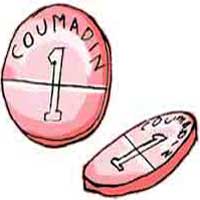
Cardiac Rehab Exercises – What Are The Best To Do After Heart Surgery?
By Adam Pick on June 18, 2008
Cardiac rehabilitation programs are a critical, and sometimes overlooked, part of heart surgery recovery. As my 2007 survey showed, only 51% of patients attended structured classes with cardiac rehab exercises during their recovery. In my opinion, that is a shame. I could go on-and-on about the physical and mental benefits of good cardiac rehabilitation programs.
However, I just received a quick question that reads, “What types of exercises do you do at cardiac rehab centers?”
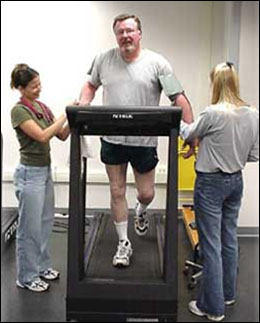
“Depression After Cardiac Catheterization?” Asks Samantha
By Adam Pick on June 18, 2008
I recently received a unique question from Samantha, a caregiver. She writes, “My husband recently had a cardiac catheterization and appears to be depressed. Is it common for patients to become depressed following a catheter procedure?”
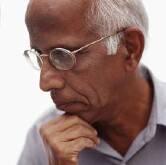
This is a phenomenal question. Unfortunately, I do not have a phenomenal answer.
However, I can share with you that your husband may be feeling common emotions of patients newly diagnosed with heart valve disease. Specifically, the biggest emotional challenges patients experience leading up to surgery, in my opinion, is fear, confusion, doubt and, most of all, loneliness.
Those emotions may or may not trigger your thoughts about a “depression” related to cardiac catheterization. It could be isolated to that one event. But, my gut tells me there is more to the story.
One thought for you… Patient cardiac depression following heart surgery can be a monster. In some studies, between 30% – 75% of patients experience some form of depression. Dr. Scott Mitchell recently stated, “I think there is a significant incidence of acute post-operative depression.” That said, if you feel your husband is having behavioral challenges pre-surgery, you may want to consider some form of counseling (therapy) for him to assist and support his recovery.
I hope that helps share a little bit about depression and cardiac catheterization / heart surgery.
Keep on tickin!
Adam
Cardiac Quiz: Can You Find The Four Heart Valves?
By Adam Pick on June 18, 2008
Below you will find a neat animation of blood flowing through the human heart.
As you can see, blood is pumped through the atria into the ventricles and back out to the body and lungs.
Here is your cardiac question of the day, “Can you identify each of the four heart valves shown within this animation?”
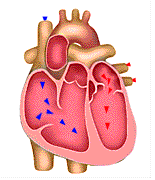
Don’t struggle. If you need a refresher on heart anatomy, watch this video about the four heart valves and their main function (opening and closing).
Keep on tickin!
Adam
Off-Topic: The Two “Gs” Of Inflation
By Adam Pick on June 18, 2008
I know I typically write about all things related to heart valve replacement and heart valve repair.
However, I can’t get over what’s happening to my wallet… It’s shrinking right before my very eyes.

There’s obviously no need for me to rant-and-rave about the first G of inflation… GAS! We hear about it. We read about it. It’s all over the news. And, every time we fill up our cars, SUVs and trucks, that little voice in the back of our brain screams aloud, “OH MY GAWD!”, as the price goes up-and-up-and up. In fact, with gas prices up 20% since last June, my local gas station cuts me off when I reach $75 at the pump. A trip to Costco doesn’t make it any easier. Lines for cheaper gas are always nine-to-ten cars deep.
After Heart Valve Replacement Surgery, Patient Opens 30-Year Dream
By Adam Pick on June 18, 2008
If there is one thing I see in heart surgery patients, it is their renewed vigor for life.
Personally, I consider the time after heart valve replacement surgery (in 2005) as my own “Second Chance”. As I have shared with you in prior blogs, I am much more appreciative of all the wonderful things that this amazing life has to offer. I get set off by the smallest things (the wonderful smell of a rose) or and the largest commitments (my marriage to Robyn).
That said, any time I see something which resonates with this mindset, I share it with you.
Sooooooo…. Here is in a fascinating story about a heart surgery patient that is chasing his dream. Mike McGill, left his insurance job of 17 years to open his very own sportsbar called “The Plate”.
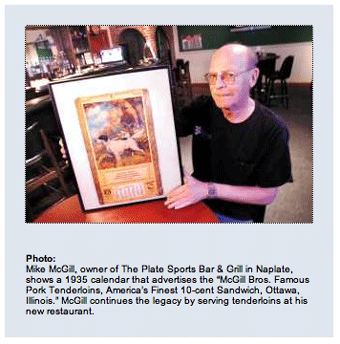
I thought you might enjoy this story published in The Times earlier today. Click this link to read about, Mike McGill Opens Sportsbar After Open-Heart Surgery Story.
Keep on tickin!
Adam
Cysts In Mitral Heart Valve – Is It Common?
By Adam Pick on June 18, 2008
Yesterday, I spoke with a patient who asked me, “Are cysts in the mitral valve common? Do they require surgery to be removed?”
I have to admit… I was intrigued. I had never heard this question before. That said, I did some Google’ing about medical conditions involving the mitral valve and cysts.
After reviewing several websites about cysts and heart valves, I learned that mitral valve cysts are rare. I found several write-ups that emphasized this point. Interestingly enough, I found two patient cases which identified blood cysts in the mitral valve and the surgical treatment used to remove them (mitral valve repair surgery).
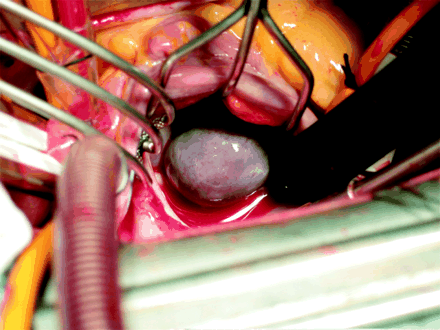
CASE I (from Asian Cardiovascular And Thoracic Annals): A 68-year-old man underwent coronary angiography for postinfarction angina, which revealed right coronary artery stenosis and a mass in the left ventricle. Transesophageal echocardiography showed a large blood cyst originating from the anterior papillary muscle of the mitral valve. Coronary artery bypass grafting was performed and the cyst was successfully excised.
Case II (from American Heart Association): A 25-year-old, apparently healthy woman was referred to us with suspicion of left atrial myxoma found incidentally by echocardiography. Physical examination was unremarkable except for a diastolic plop sound on cardiac auscultation. Transthoracic echocardiography showed a large, very mobile cystic mass (23×25 mm) attached to the mitral valve and mild mitral regurgitation with normal ventricular size and function. At operation, a bluish cystic mass was seen attached to the anterior mitral valve leaflet with a broad base (pictured above). Resection of mitral cyst and mitral valve repair was performed successfully. Histological examination showed a blood-filled cystic cavity surrounded by a fibromyxoid wall with an internal lining of endothelial cells. The postoperative course was uneventful. Although small blood-filled cysts of the heart valves are sometimes found at postmortem examination of infants, a large cyst found in an adult is very rare. To learn more about mitral regurgitation, click here.
I hope that helps explain more about cysts in mitral heart valves.
Keep on tickin!
Adam
Beyond The David Procedure For… David
By Adam Pick on June 15, 2008
After two heart surgeries in six days (yes, you read that right), David Barnes has quite the tale to tell. That said, I thought you might like to hear more about this inspirational and educational patient success story.
Dear Adam,
I had my heart surgery on March 25, 2008 at Methodist Hospital in Indianapolis, Indiana. My surgeon, Dr. Fehrenbacher, replaced a dilated ascending aorta (5.3cm) and repaired an old descending aorta coarctation repair from 1972. I also had the David Procedure – aortic root replacement without replacement of the aortic valve.
On March 31st, just six days later, I required a second surgery (a Ross Procedure with a synergraft pulmonary valve from Cryolife), because the David Procedure failed.
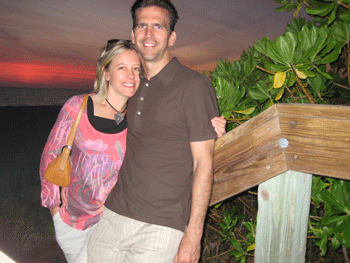
Naples, Florida After Two Heart Surgeries
Would You Recommend Your Heart Surgeon?
By Adam Pick on June 13, 2008
Earlier today, I was at Borders reading a fascinating book called “The Ultimate Question” by Fred Reichheld. The book claims that YOUR customer satisfaction is best measured by one simple question, “Would you recommend this product or service to a friend?”
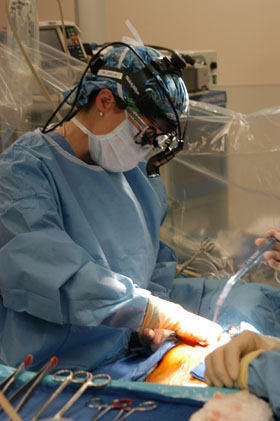
When I stopped to think about it, I was amazed at all the different product and service recommendations I made during the last 24 hours. The list included everything from one-cup coffee machines (Keurig) to 7-inch digital photo frames (Philips) to attorneys (Valle Associates) to gardening centers (Lowes) to…. yes… you guessed it… HEART SURGEONS.
Robin Shares About Aortic Stenosis And Cancer (Hodgkin’s Lymphoma)
By Adam Pick on June 11, 2008
There never seems to be a shortage of inspirational emails waiting for me in my inbox.
Recently, I exchanged emails with Robin, a fellow patient recently diagnosed with aortic stenosis. As you can read, this is the second major health issue for Robin. Several years ago Robin fought cancer (Hodgkin’s lymphoma).
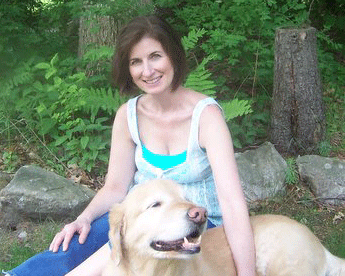
In her note to me, Robin mentioned something that I had never heard before – the negative impact of radiation on heart valve function. Specifically, Robin noted that her medical team believes that her stenotic valve was caused by radiation treatments used to fight the cancer.
Insulin Treatments For Heart Surgery Patients?
By Adam Pick on June 11, 2008
It really is amazing to read and learn about all the new studies and research about heart surgery and heart valve disease.
You may have read my recent posts about minimally invasive aortic valve replacement, the use of statins to reduce complications post-operation, blood transfusion concerns or treating stenotic aortic valves with HDL-increasing drugs.
Well… Here’s another interesting study just released from the University of Michigan Health System.

According to Michigan researchers, nearly half of all heart surgery patients may experience blood sugar levels high enough to require temporary insulin treatment after their operation, even though they’ve never had diabetes. And a significant minority of those patients might need to take medicines for days or even weeks after they leave the hospital.
To read more about Michigan’s research, please click here.
Keep on tickin!
Adam
Remember… Avoid Jacuzzis And Hot Saunas During Early Recovery
By Adam Pick on June 7, 2008
I don’t know about you…
But, as I went through the heart valve surgery process, I learned ALOT of interesting information about the heart – specifically, its anatomy and function.
I also learned there was a laundry list of Do’s and Dont’s specific to the recovery. In past posts, I’ve written about many of these recovery suggestions which include everything from not drinking coffee after surgery to using your incentive spirometer after heart surgery.

FYI, here is another little fact to remember during your recovery from heart valve repair or heart valve replacement surgery.
Do not spend time in a jacuzzi, wet sauna, dry sauna or extremely hot shower immediately after cardiac surgery. High temperatures force the heart to work harder to circulate blood throughout the body.
As The Practical Guide For Heart Health states, “Avoid working and exercising in extremely hot temperatures during your early recovery from heart surgery.”
Keep on tickin!
Adam
“How To Tell Your Kids About Heart Surgery?” Asks Jerry
By Adam Pick on June 7, 2008
Every so often I receive a fantastic question that is impossible for me to answer.
For example, today I received a question from Jerry. He writes, “Adam: Thank you for your book. I am curious if you have any advice on how to speak to my kids about my upcoming heart valve surgery. I don’t want to scare them. However, I do want to give them some understanding of what might happen. If you have any advice, I would appreciate it.”
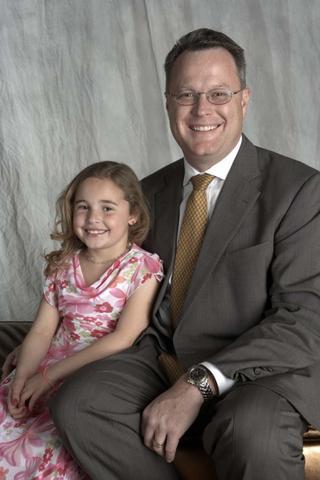
The reason I can’t answer this question is because I have no kids and therefore no personal experience to share. That said, I am hopeful that YOU might be able to help Jerry with this issue.
Do you have any thoughts or ideas for Jerry? If so, please ‘Leave A Reply’ below!!
In advance and on behalf of Jerry, thanks so much!!!
Keep on tickin!
Adam
Heart Surgery Pioneer – Vivien Thomas (Johns Hopkins)
By Adam Pick on June 7, 2008
The story of Vivien Thomas is extraordinary.
In fact, as Robyn (my wife) and I watched the HBO special on his life, we both found ourselves in tears.
The television movie is called “Something The Lord Made” and it premiered in May, 2004.
During his lifetime, Vivien Thomas faced prejudice, bigotry, wage discrimination and humiliation in the process of changing cardiac surgery forever. That said, after the replacement of my diseased aortic valve and pulmonary valve, I am DEEPLY INDEBTED to this man and his innovative colleague Dr. Blalock.
Here is Vivien Thomas’ Biography On Wikipedia.
If you have any interest in learning about one of the pioneers of heart surgery, I highly encourage you to watch or rent this movie.
Keep on tickin!
Adam
Statins Prevent Death And Complications In Heart Surgery Patients, Says New Study
By Adam Pick on May 30, 2008
As for new advancements in heart surgery… Here is a recently released study regarding statin-use before heart surgery. The good news? It appears promising.
Medical News Today reported that people given cholesterol-fighting statin drugs before heart surgery are far less likely to die or suffer complications afterwards, German researchers said on Wednesday. The analysis of more than 31,000 patients provides some of the strongest evidence yet of the benefits of statins before heart surgery but it also found that too few doctors are prescribing them, they said in the European Heart Journal.
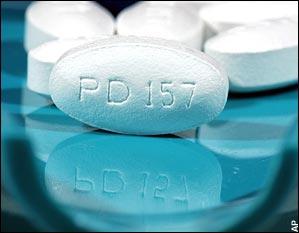
Does Grey’s Anatomy Miss Mark On Heart Surgery Reality?
By Adam Pick on May 30, 2008
Don’t get me wrong.
I really enjoy the television show Grey’s Anatomy (Thursdays, 9pm on ABC).
My wife (Robyn) really loves it. So, we always watch the weekly trials and tribulations of Meredith Grey, McDreamy, McSteamy, George, the Chief, Yang, Izzy and, lately, Dr. Erica Hahn – the head of cardiothoracic surgery at Seattle Grace.
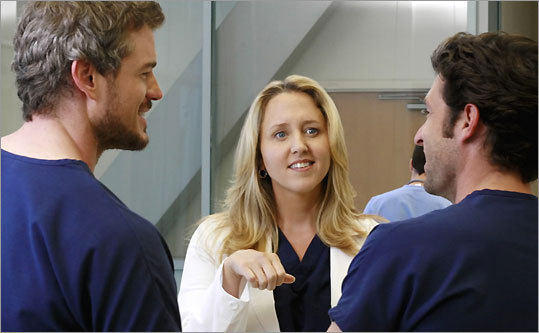
That said, the title of this blog may be a little harsh for ABC’s hit series.
But, as a former open heart surgery patient, I’m getting a tad uncomfortable of the dramatic style by which Grey’s Anatomy depicts life in a heart surgery ward.
- Last week, the show depicted a three-way sexual innuendo among the operating physicians during cardiac surgery.
- A few weeks before that, a patient showed little-to-no signs of physical trauma following heart valve surgery.
- Recently, Dr. Hahn (played by Brooke Smith) failed to inspire and encourage her talented resident (Yang) to participate in a cardiac procedure.
I know. I know.
Maybe I’m a little sensitive.
It is a television show designed to win fans, ratings and ultimately advertisers.
I guess I just want future patients and caregivers to know what life is really like in a hospital. Especially, considering that Grey’s Anatomy’s viewers may be scheduled for surgery the next day, the next week or the next month. For that reason, I wish the writers and producers of the show would enhance their portrayal of hospital life for heart surgery patients.
Do you watch the show? What do you think?
Keep on tickin!
Adam
First Mechanical Heart Valve Keeps Tickin’ 38 Years Later
By Adam Pick on May 30, 2008
As I wrote earlier about the first mechanical heart valves, doctors could do little to help people with failing heart valves until 1960, when Portland heart surgeon Dr. Albert Starr and engineer Lowell Edwards introduced their mechanical heart valve. Here is a picture of a replica of the first ball-in-cage heart valve replacement that was given to me by Edwards Lifesciences.
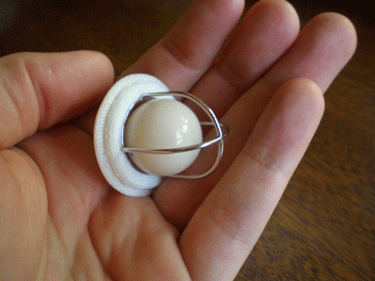
One of the key questions patients ask me is, “How long did the early mechanical heart valves last?”
Washington Senator, Dan Swecker, To Undergo Heart Valve Replacement Surgery
By Adam Pick on May 30, 2008
The vice chairman of the state Senate minority caucus, Republican Dan Swecker of Rochester, is in the hospital with a heart problem. Swecker’s staff say he was taken to Providence St. Peter Hospital in Olympia, Washington by ambulance after what seemed to be a heart attack Saturday night.
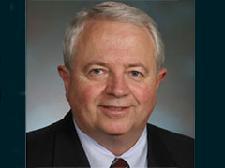
According to a news release Tuesday, tests show Swecker has a congenital heart valve abnormality (potentially a bicuspid heart valve). An operation to fix the problem is planned for this week. According to the news release, Dan Swecker is in critical care but stable condition.
Swecker joins a long list of public personalities to have heart valve surgery including Arnold Schwarzenegger, Jim Lehrer, Jessie Helms, Charlie Rose and Rodney Dangerfield.
All the best for a speedy recovery Senator Swecker!
Keep on tickin!
Adam
Ali’s 12 Night Hospital Stay With Her Mom, After Aortic Valve Replacment Surgery
By Adam Pick on May 22, 2008
I first met Ali, from Northern California, a few months ago. Her mother had been diagnosed with severe aortic stenosis and needed heart valve replacement. To learn more about narrowed heart valves, click here.
I could tell right-away that Ali was going to be a phenomenal caregiver through this experience. Ali and I spoke on the phone for thirty minutes about her mom, her health and the next steps for aortic heart valve replacement. One of the big questions for Ali’s mother was, “Should I go to Cleveland Clinic? Or, should I have the surgery done locally by Dr. Gaudiani?”
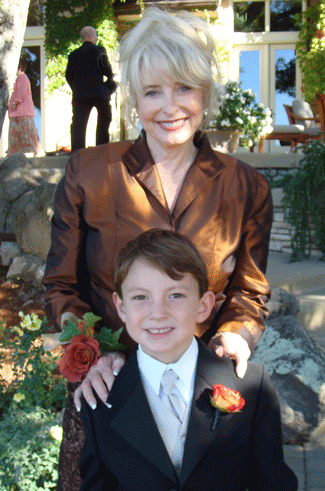
Ali’s Mom and Ali’s Son
Last week, I received an update from Ali. I thought you might like to read this email to get a very unique glimpse into the caregiver’s perception of heart valve surgery.




